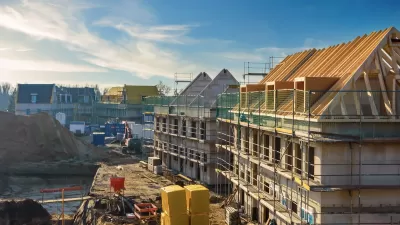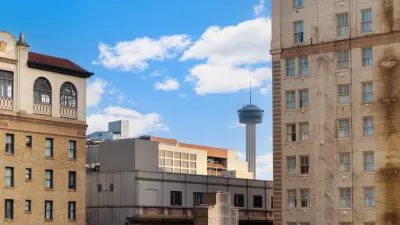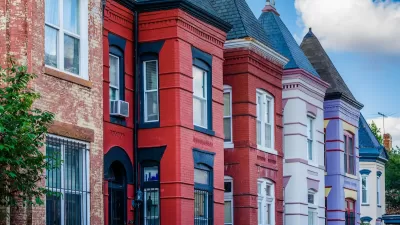Although it is widely seen as a national issue, decisions made at the local level often have a stronger impact on inflation than federal policies.

While it may be easy to blame the federal government for rising inflation, Alex Yablon, writing in Vox, argues that “many of the worst bottlenecks making the pandemic economic recovery so painful were put in place by political actors much lower down the food chain, from governors to city councilors to everyday citizens.”
“State and local jurisdictions, not the Fed or the feds, determine how much housing is built and where, when to permit cheap clean energy sources and vital energy transmission lines, and whether to expand ports and logistics infrastructure. Across the country, local legislators, executives, and public authorities have declined to spend more to improve economic capacity, or placed additional hurdles in the way of badly needed new development.”
Yablon outlines three areas where local governments have exacerbated the situation, as well as suggestions for how to reverse the negative impacts: energy and transportation, where local officials can support the transition to renewable energy; housing, where local decisionmaking about zoning and land use affect supply; and logistics infrastructure, which is often controversial at the local level. Too often, major infrastructure projects cross multiple jurisdictions and agencies with competing interests and priorities. As Yablon writes, “These efforts require a level of coordination and prioritization policymakers haven’t practiced in decades.”
FULL STORY: Mad about inflation? Blame your local officials.

Planetizen Federal Action Tracker
A weekly monitor of how Trump’s orders and actions are impacting planners and planning in America.

San Francisco's School District Spent $105M To Build Affordable Housing for Teachers — And That's Just the Beginning
SFUSD joins a growing list of school districts using their land holdings to address housing affordability challenges faced by their own employees.

The Tiny, Adorable $7,000 Car Turning Japan Onto EVs
The single seat Mibot charges from a regular plug as quickly as an iPad, and is about half the price of an average EV.

With Protected Lanes, 460% More People Commute by Bike
For those needing more ammo, more data proving what we already knew is here.

In More Metros Than You’d Think, Suburbs are Now More Expensive Than the City
If you're moving to the burbs to save on square footage, data shows you should think again.

The States Losing Rural Delivery Rooms at an Alarming Pace
In some states, as few as 9% of rural hospitals still deliver babies. As a result, rising pre-term births, no adequate pre-term care and "harrowing" close calls are a growing reality.
Urban Design for Planners 1: Software Tools
This six-course series explores essential urban design concepts using open source software and equips planners with the tools they need to participate fully in the urban design process.
Planning for Universal Design
Learn the tools for implementing Universal Design in planning regulations.
Smith Gee Studio
City of Charlotte
City of Camden Redevelopment Agency
City of Astoria
Transportation Research & Education Center (TREC) at Portland State University
US High Speed Rail Association
City of Camden Redevelopment Agency
Municipality of Princeton (NJ)





























